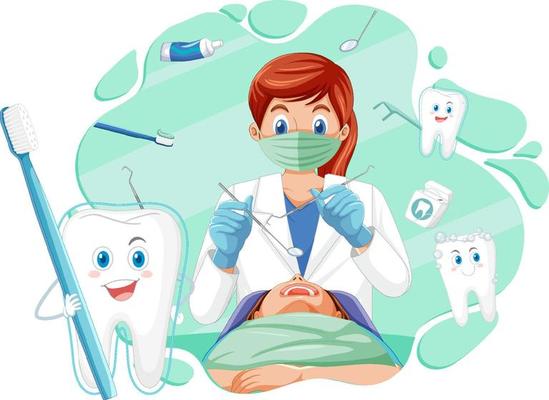Discover Common Dental Problems That Dentists Can Treat Effectively
Oral health is an essential facet of overall well-being, yet typical problems such as cavities, periodontal illness, tooth degeneration, tooth sensitivity, and misaligned teeth typically go untreated. Developments in dental care have actually made it possible for dental professionals to deal with these troubles properly through various therapies.
Dental Caries
Cavities, additionally referred to as tooth decays, are one of the most widespread oral problems influencing individuals of any ages. They occur when the enamel, the hard outer surface area of the teeth, is worn down by acids produced by germs in the mouth. These bacteria grow on sugars and starches from food and drinks, developing a sticky movie called plaque that follows the teeth - dentist in eugene oregon. Over time, the acids in plaque can produce small openings or openings in the enamel, leading to cavities.

Safety nets are important in combating cavities. These consist of preserving excellent dental hygiene techniques such as normal cleaning with fluoride toothpaste, flossing, decreasing sugar consumption, and participating in regular dental gos to. By sticking to these practices, individuals can considerably lower their danger of developing dental caries and maintain optimum oral health and wellness.
Periodontal Disease
Periodontal illness, also referred to as gum illness, is a widespread problem that impacts the cells surrounding and sustaining the teeth. It mainly occurs due to the build-up of plaque, a sticky film of bacteria that forms on the teeth. Otherwise gotten rid of through normal brushing and flossing, plaque can harden into tartar, which can only be eliminated by an oral expert.
There are 2 main phases of periodontal condition: gingivitis and periodontitis. Gingivitis is the initial, milder type, characterized by red, inflamed gum tissues that might hemorrhage quickly. At this phase, the condition is commonly reversible with proper oral hygiene and expert oral cleanings. If left without treatment, gingivitis can progress to periodontitis, an extra extreme type that can cause loss of the bone that supports the teeth.
Periodontitis includes deeper infection and swelling of the gums, creating the gums to retreat from the teeth and create pockets that can become infected. Treatment for periodontitis often involves scaling and origin planing, a deep-cleaning procedure to remove tartar and microorganisms from below the gum tissues. In more innovative instances, medical interventions might be necessary to recover periodontal and bone health and wellness. Normal oral exams are important for early detection and effective administration of gum illness.
Dental Caries
Dental cavity, a common oral concern, shows up when the Recommended Reading hard surface area of the tooth, called enamel, is damaged by acids created by microorganisms in plaque. This procedure starts when sweet and starchy foods are consumed, providing a breeding place for bacteria. These microorganisms metabolize the sugars to create acids, which subsequently erode the enamel, causing tooth cavities.
At first, dental cavity may be asymptomatic, but as it advances, it can lead to visible holes or pits in the teeth, tooth pain, and level of sensitivity to hot, chilly, or pleasant materials (eugene dentist). If left untreated, the decay can pass through deeper layers of the tooth, reaching the dentin and at some point the pulp, triggering extreme pain and potentially leading to abscesses or infections
Early treatment is crucial for optimum outcomes, making regular dental check-ups important for recognizing and attending to imbalance problems quickly. Through tailored treatment plans, dentists can properly recover both the performance and look of a person's smile.
Conclusion
In recap, attending to common oral problems such as cavities, gum disease, tooth decay, tooth sensitivity, and misaligned teeth is critical for preserving oral health and wellness and capability. Dental experts are equipped to detect and treat these issues effectively via different treatments, consisting of dental fillings, cleanings, orthodontics, and precautionary treatment. Prompt and proper treatment can alleviate the risks connected with these oral troubles, therefore enhancing overall oral health and wellness and lifestyle.
Dental health is an essential facet of total try here well-being, yet typical problems such as tooth cavities, gum condition, tooth decay, tooth sensitivity, and misaligned teeth typically go unattended.Tooth decay, a prevalent oral issue, shows up when the tough surface area of the tooth, recognized as enamel, is harmed by acids created by bacteria in plaque. Precautionary measures such as normal oral check-ups, great oral health techniques, and a balanced diet are crucial in mitigating the danger of tooth decay.
Common aspects consist of enamel disintegration due to aggressive brushing, acidic food usage, or dental conditions such as gum tissue economic downturn and tooth decay.In summary, addressing usual dental issues such as dental caries, periodontal disease, tooth decay, tooth level of sensitivity, and misaligned teeth is vital for preserving dental wellness and capability.